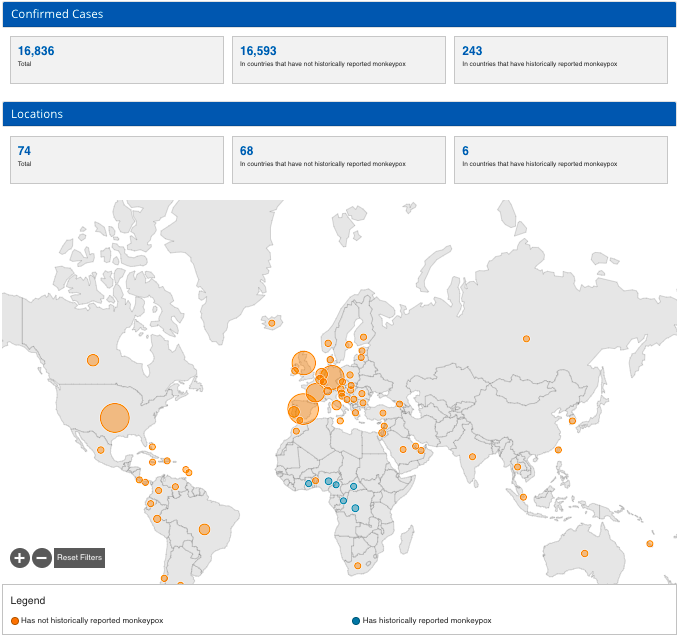WHO Has Now Declared The Monkeypox Outbreak A Global Health Emergency
It's the strongest call to action the World Health Organization can make. The most recent such announcement was made for COVID-19 in 2020.
The global monkeypox outbreak is now a public health emergency of international concern (PHEIC), the same alert label that was given for COVID-19 in January 2020 by the World Health Organization (WHO)
It is the seventh time that a PHEIC declaration has been made since 2009, the most recent being for COVID-19 before it was declared a pandemic. The rare designation means the WHO now views the monkeypox outbreak as a significant enough threat to global health that a coordinated international response is needed to prevent the virus from spreading further and escalating into a pandemic.
Emergency Committee members that met on Thursday, 21 July to discuss the potential recommendation were split on the decision, with nine members against and six in favour of the declaration. This prompted WHO Director-General Tedros Adhanom Ghebreyesus to break the deadlock.
"I have decided that the global monkeypox outbreak represents a public health emergency of international concern," Tedros said at a press conference.
The monkeypox outbreak is rapidly spreading
Around 74 countries have reported outbreaks of the viral disease as confirmed cases cross 16,800, according to a tally published this week by the US Centers for Disease Control and Prevention (CDC).
Across Asia, there are over half a dozen countries that have reported confirmed cases, with Singapore being one of them. The city-state confirmed six cases on 14 July, and Thailand confirmed its first case on 21 July. Meanwhile, India has reported two, and Australia has the highest confirmed cases at 42.
Across the world, Spain has the most number of confirmed cases at 3125, followed by the US at 2890, Germany at 2268, and the UK at 2208, the CDC tally shows.
Tedros said that currently the monkeypox outbreak — which spreads via close contact — is limited among men who have sex with men
While the majority of transmission has occurred in the gay community, the WHO has emphasised that anyone can catch monkeypox regardless of sexual orientation. "Stigma and discrimination can be as dangerous as any virus," Tedros said.
Symptoms of the disease begin to appear seven to 14 days after exposure and include fever, muscle aches, exhaustion, and a rash that can appear on the body. Symptoms also include pus-filled skin lesions, which can be excruciating.
